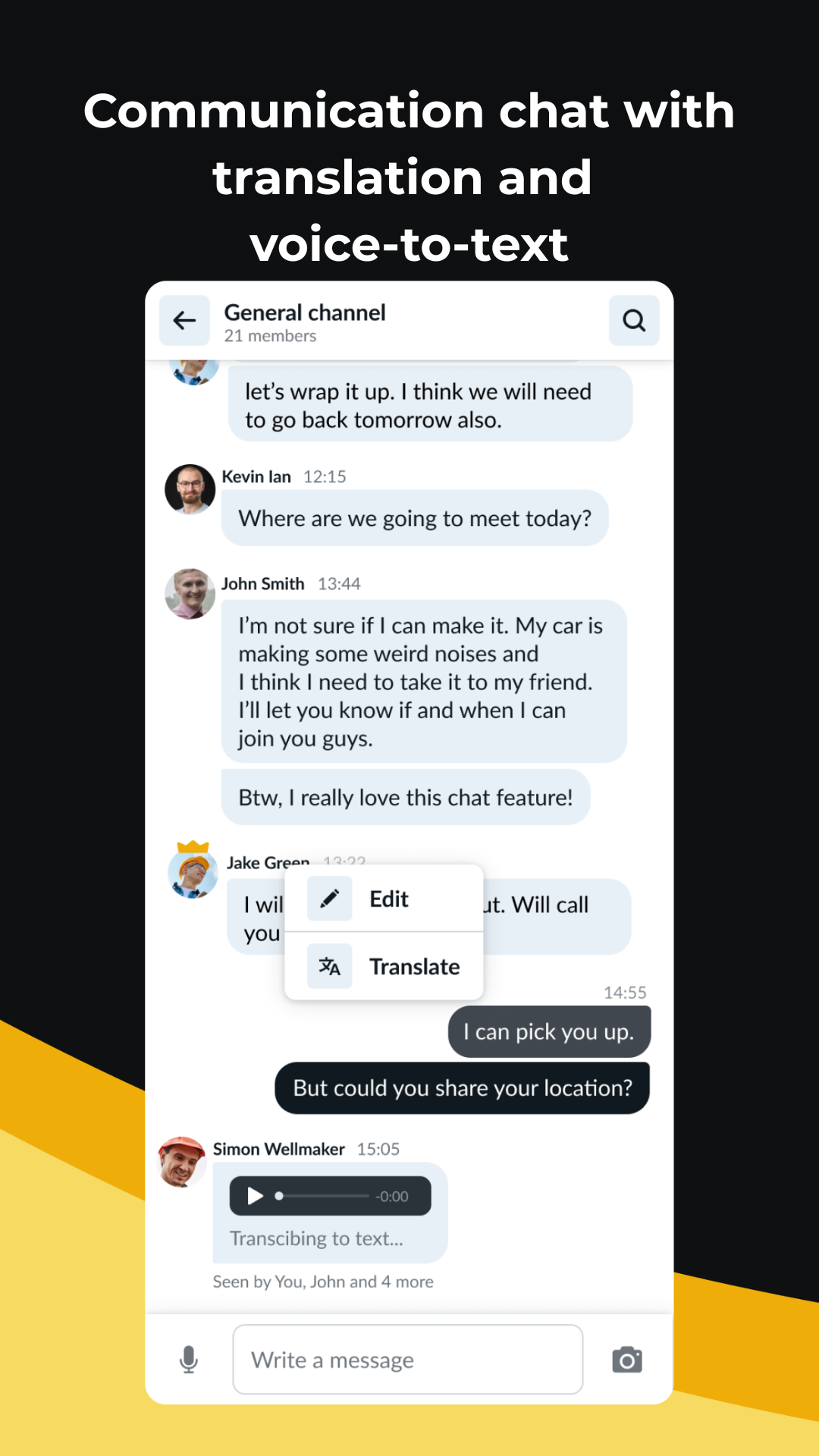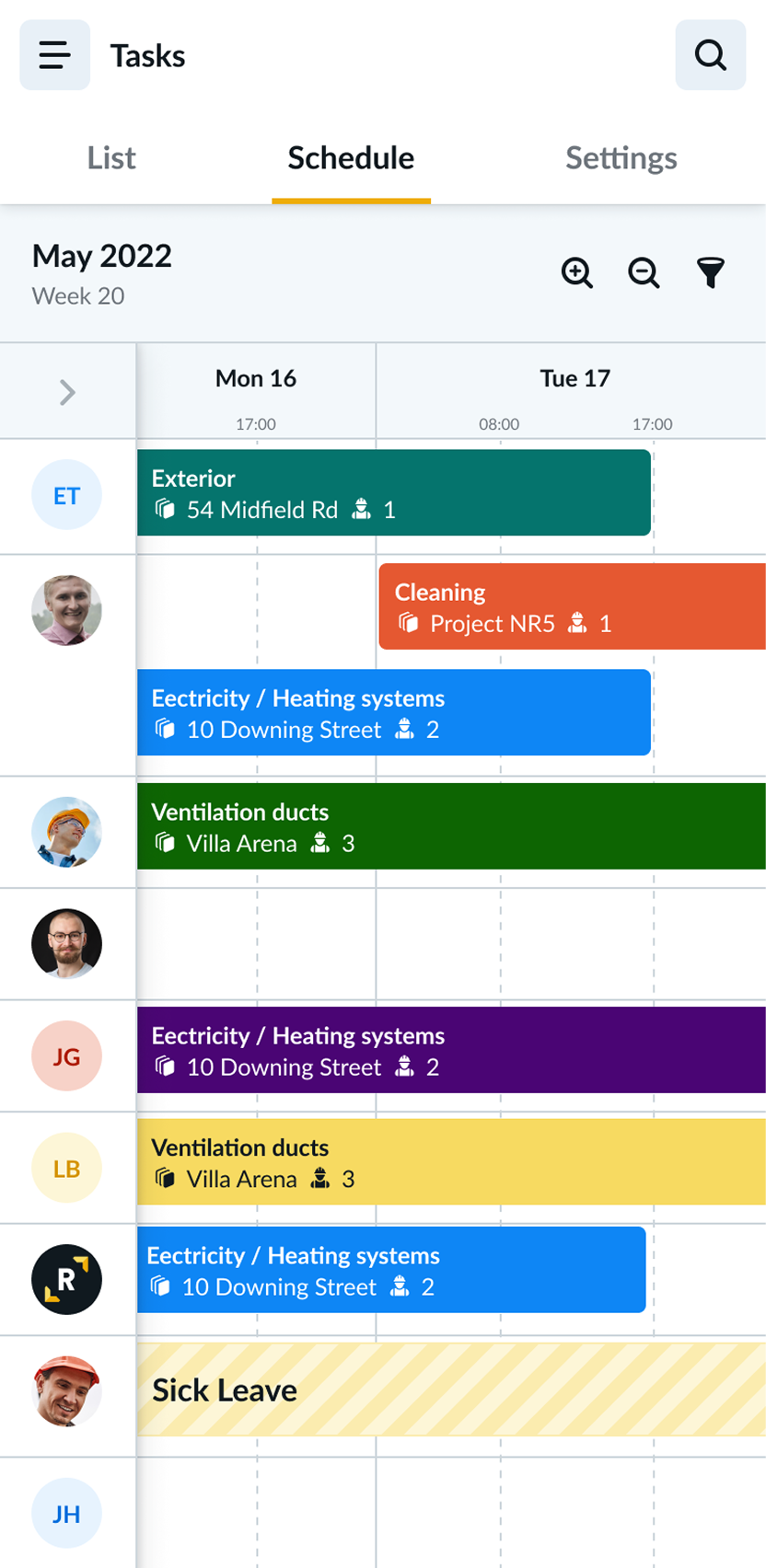Case Study: Language Barriers Caused Costly Delays on a Construction Site
Overview
Project: Multi-unit residential development
Location: Gdańsk, Poland
Value: €2.8M
Contractor: Mid-sized general contractor with local and foreign subcontractors
Workforce composition: 55% Polish, 35% Ukrainian, 10% Belarusian
Issue: Language barriers - Costly rework and delays due to miscommunication across languages
The Situation
In early 2024, a general contractor in Gdańsk, Poland, began construction on a 60-unit residential complex. While the architectural and technical documentation was precise and shared in universally understood formats like drawings and schematics, everyday communication told a different story.
The workforce, a mix of Polish site managers and Ukrainian and Belarusian subcontractors, struggled with the flow of daily information. Task assignments, safety protocols, and work hour tracking were largely handled in Polish, via verbal briefings, handwritten notes, and printed instructions, regular language barrier that happens on every construction site.
What seemed like a manageable challenge quickly snowballed into a costly one.
What Went Wrong
1. Misunderstood daily assignments
Site managers used morning briefings to assign work. These briefings, often verbal or scrawled on whiteboards, were conducted only in Polish. One Ukrainian crew misinterpreted their assignment and poured concrete for footings in the wrong place.
- Rework time: 2.5 days
- Material waste: €4,500
- Labor cost overrun: €1,800

2. Ignored safety protocols
A subcontractor team failed to follow safety perimeter markings during scaffolding assembly. They had signed the required safety documents, they didn’t fully understand them. The instructions were only provided in Polish.
- Incident: Minor injury
- Inspection triggered by incident
- Fine: ~€3,000 from Państwowa Inspekcja Pracy
3. Missed time logs
Without a digital system, workers relied on foremen to record work hours. Workers communicated their hours verbally, often at the end of the week. Several hours went unrecorded, leading to payroll errors. Some workers didn’t receive their full pay, resulting in complaints.
- Lost hours claimed: ~72 hours total
- Payroll adjustments: €1,300
- Delays due to staff turnover 2-3 days
The Hidden Costs
| Category | Estimated Loss |
| Rework (materials and labor) | €6300 |
| Payroll disputes | €1300 |
| PIP fine | €3000 |
| Delays (3 days lost) | €4500 (renting equipment + overhead) |
| Total impact | €15100 |
A total of €15,100 in avoidable costs, all traceable to basic language barriers and a lack of digital communication tools.
What Could Have Prevented This
- Digital task management with auto-translation Tools like Remato or Fieldwire provide daily task updates in each worker’s native language.
- Online safety inductions with language options A digital system ensures safety documents are read and understood before work begins.
- Mobile time tracking with geo-verification Automated logging prevents disputes and removes pressure from foremen.

Key Takeaways
- Language mismatches cost real money, even when the drawings are clear.
- Verbal instructions are not enough in multilingual crews.
- Investing in multilingual digital tools can prevent costly mistakes, increase safety, and improve workforce morale.
Summary
This project in Gdańsk highlights a growing issue in modern construction: the cost of miscommunication across multilingual teams, simply said language barrier. Despite having skilled workers and clear technical drawings, a lack of multilingual support in daily communication led to rework, payroll disputes, safety issues, and ultimately, a financial loss. These costs are not rare, they’re increasingly common in today’s diverse labor environments.
The solution isn’t more meetings or better handwriting on whiteboards. It’s digital transformation, done smartly. Construction app like Remato help communication by automatically translating daily tasks, safety briefings, and schedules into each worker’s preferred language. Mobile time tracking and digital inductions further reduce friction, cut down on errors, and boost team morale.
For mid-sized contractors operating in Poland, across Europe, or in the U.S., the lesson is clear: if your workforce is multilingual, your tools should be too. The investment in modern, multilingual digital platforms pays for itself quickly — not just in saved costs, but in safer sites, happier teams, and more predictable project outcomes.
In construction, small misunderstandings have big consequences. But with the right technology, they’re completely avoidable.
